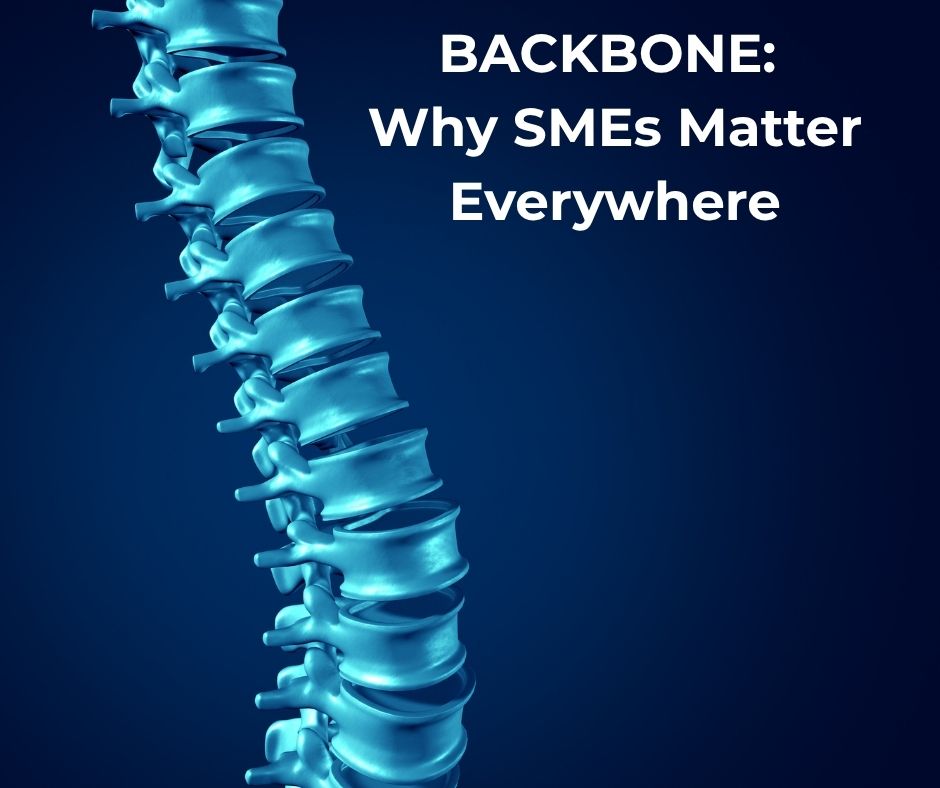SMEs: The Backbone of Global Trade and Supply Chains series

Part 1 — Backbone: Why SMEs Matter Everywhere
Introduction
Small and medium enterprises (SMEs) are the engine room of every economy—they make up most firms, create most jobs, and link local production to global markets. Protecting and enabling SMEs is central to resilient, inclusive trade. They operate across every sector, from manufacturing to tech to services, underpinning economic diversity and local resilience.
SMEs as Foundational Economic Actors
SMEs represent around 90% of businesses globally and account for more than half of worldwide employment. In emerging markets, they can contribute up to 40% of GDP, showing that small firms are not peripheral—they are foundational to economic development.
Case Study — Philippines’ MSME SectorIn the Philippines, MSMEs constitute over 99% of all businesses and employ roughly 63% of the workforce. They operate across manufacturing, services, and agriculture, linking rural producers to urban and export markets. Their prevalence highlights how SMEs are central to national development and poverty reduction strategies.
Policy Reflection: Strengthening the Backbone
Policies to support SMEs include:
- Simplified registration and licensing to reduce barriers to entry.
- Targeted finance and credit schemes for small businesses.
- Support for sectoral clusters to enhance productivity and resilience.
FACT SHEET — SMEs as Economic Backbone
Area | Global Example | Impact | Source |
Firm prevalence | Philippines MSMEs | 99% of firms, 63% employment | World Bank, 2023 |
GDP contribution | Emerging markets | Up to 40% GDP | World Bank, 2023 |
Sector diversity | Philippines, SMEs in agri, services, manufacturing | Economic resilience and job creation | OECD, 2023 |
Policy enablers | Registration simplification, finance access, clusters | Promotes SME sustainability and growth | World Bank / OECD, 2024 |
Key Takeaways
- SMEs are the foundation of employment, GDP, and economic diversity.
- They connect local communities to national and global markets.
- Enabling policies reinforce their central role in resilient trade ecosystems.
We will expand on these policy ideas and hear directly from SMEs around the world at next year’s Festival of Inclusive Trade. You too can engage, share your insights, and get involved in shaping the future of inclusive, resilient trade.